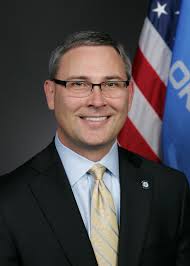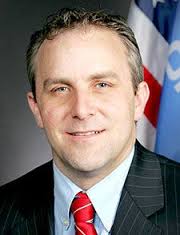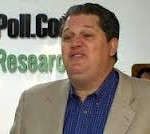Jay Chilton
MiddleGround News
Lawmakers, pollsters and policy experts voice concerns about a study conducted by the 2015 Democratic Pollster of the Year, raising questions with regard to the validity of the survey.
 A statement about the poll and its margin of error released with the results read, “Global Strategy Group conducted a survey on March 26-29, 2015 with 500 registered voters in Oklahoma. The results have a margin of error of +/-4.4%, and care has been taken to ensure the geographic and demographic divisions of the expected electorate are properly represented based on past voter turnout statistics.”
A statement about the poll and its margin of error released with the results read, “Global Strategy Group conducted a survey on March 26-29, 2015 with 500 registered voters in Oklahoma. The results have a margin of error of +/-4.4%, and care has been taken to ensure the geographic and demographic divisions of the expected electorate are properly represented based on past voter turnout statistics.”
The poll results ― ironically released on Tax Day ― stated, “Oklahoma Voters Oppose Tax Cut While State Faces Budget Shortfall.”
However, concerns about the polling firm’s objectivity, inconsistent subject format, leading language of the questions posed, and faulty premises altering questions’ meanings called into question the survey’s reliability.
“The questions were leading,” Jonathan Small, executive vice president for the Oklahoma Council of Public Affairs, said, referring to the March 26-29 survey conducted by the New York-based Global Strategy Group. “This is from the same (pollster) who said Oklahomans support increasing taxes on the oil and gas industry by 600 percent.”
The third question in the poll, relating to a scheduled quarter percent reduction in the income tax rate, was preceded by a statement requiring the respondent to assume the statement is true before answering the poll question.
“The tax cut will leave Oklahoma with $57 million less in tax revenues to fund state services like education, public safety, and health care at a time when there is a $611 million shortfall in next year’s state budget,” the statement reads.
The question appeals to the statement as an authority for the respondent.
“Having heard this do you support or oppose moving ahead with the scheduled cut to the top personal income tax rate?” the question reads.
Small said it was a contingency-based question which depends on the statement being factual in order for the response to the question to be reliable. The statement, in Small’s view, is not factual.
“The budget shortfall is a projection,” he said, indicating uncertainty about the size of any reduction in state revenues. He continued to explain that the $611 million figure is a combined number of the previous year’s spending excess added to the projected reduction in tax receipts for the current year.
“A better question might be, ‘Would you favor a tax increase ― because that’s what this is ― to bail out legislators’ overspending from last year?’” he said. “Not one tax cut in Oklahoma has ever caused a budget shortfall. There is not a single time they can point to.”
 State Rep. Tom Newell, R-Seminole, believes the poll intentionally misleads Oklahomans with false statements and is only a portion of an ongoing campaign of disinformation.
State Rep. Tom Newell, R-Seminole, believes the poll intentionally misleads Oklahomans with false statements and is only a portion of an ongoing campaign of disinformation.
“(One) fallacy is that we can’t afford to let the people of Oklahoma keep their own hard-earned money because falling oil prices are negatively impacting Oklahoma’s economy,” Newell said. “Stop and think about that. The economy is hurting and they want to take more money out of people’s pockets.”
Rep. Newell contends that the money in people’s pockets constitutes the state’s economy, which is already facing the challenge of falling oil prices, and to take dollars out of the hands of consumers only further strains the budget. Arguably, he said, the lower tax rate negates the impact of falling oil prices on our economy and thus lessens the negative impact on our state’s budget.
“The poll is built upon a carefully crafted false premise,” Newell said. “The liberal, big government groups have effectively invested vast amounts of resources convincing people that we don’t spend enough money on education and that we could spend more if not for the tax cuts.
“When asked, ‘What percentage of the budget do you think we spend on education?’ 79 percent of Oklahomans believe that the amount is 40 percent (of the budget) or less with 53 percent (of respondents) believing the amount is only 20 percent or less. Knowing this, it’s no surprise that their poll would show that 74 percent (of GSG’s respondents) believe we don’t spend enough on education. The truth is that over 50 percent of our budget goes to education.”
Newell referred to a poll conducted by The Tarrance Group on Jan. 20-22 of this year which found Oklahoma voters had been misinformed about how much of the state budget allocated to education funding.
“I firmly believe that if their poll question was prefaced with the truth,” he said, “the answer respondents gave would have been much different.”
 State Sen. Greg Treat, R-Oklahoma City, dismissed the poll in its entirety. He indicated that when questions are formed in such a way to generate a desired result, the value of the poll becomes negligible.
State Sen. Greg Treat, R-Oklahoma City, dismissed the poll in its entirety. He indicated that when questions are formed in such a way to generate a desired result, the value of the poll becomes negligible.
“The Global Strategy Group poll is nothing but a political statement,” Treat said. “Polling can be an important tool but only if questions are not drafted in such a manner to arrive at a predetermined result.
“I wouldn’t be surprised if the press release was written before the poll was even conducted in this instance.”
Despite the leading nature of the questions, the poll indicated a 40 percent rate of favorability or no opinion for the quarter percent reduction in the income tax rate. Small said history shows that unbiased polling shows consistent support for tax cuts in the state.
“SoonerPoll, The Tarrance Group and other (polling firms) have consistently shown support for tax cuts in their polls,” OCPA’s Jonathan Small said.
 Bill Shapard of SoonerPoll.com was critical of the methodology used for the poll and doubted the ability of the New York pollster’s ability to find the genuine opinions of Oklahoma voters with the survey.
Bill Shapard of SoonerPoll.com was critical of the methodology used for the poll and doubted the ability of the New York pollster’s ability to find the genuine opinions of Oklahoma voters with the survey.
“This type of polling is not representative of Oklahomans,” Shapard said. “They (GSG) used registered voters not likely voters. You need likely voters, every pollster knows this. They don’t know Oklahoma.”
He continued to explain that the pool of registered voters in the state was 2.8 million. But likely voters were a smaller subset numbering 1.1 million Oklahomans, less than half of the number of registered voters. As a result, he said, this is not representative of what Oklahomans truly feel.
After asking questions based on income tax policy the survey changed direction dramatically. The poll shifted the subject to questions about accepting federal funds, upkeep of roads and bridges, Rainy Day Fund usage, and how to best attract businesses to locate in the state. The inconsistency prompted some to conclude that the income tax questions were just a pretext to advocate for changes in unrelated policy.
Global Strategy Group’s website indicates an intentional and strong bias toward left-wing and progressive advocacy. In a March 18, 2015 report by GSG, the polling firm makes no apologies for their bias.
“GSG’s polling and strategic counsel contributed to a number of the Democratic Party’s few key wins during the 2014 midterm elections, including the re-election campaigns of Governors Andrew Cuomo (NY) and Dan Malloy (CT),” The report states in part. “GSG also worked for some of the most important progressive independent expenditures in 2014: the Democratic Congressional Campaign Committee, Democratic Governors Association, Democratic Attorneys General Association, Senate Majority PAC, House Majority PAC, Americans for Responsible Solutions, League of Conservation Voters, Environmental Defense Fund, and Michael Bloomberg’s I-USA PAC.”



Was this the group behind the poll that stated, “Oklahomans overwhelmingly support ” path to citizenship for illegals?
Why doesn’t someone ask the unemployed in McCurtain county about the illegals? They have taken over DeQueen, Arkansas and are trying to make their move in McCurtain county. Anyone check on Tyson Foods?